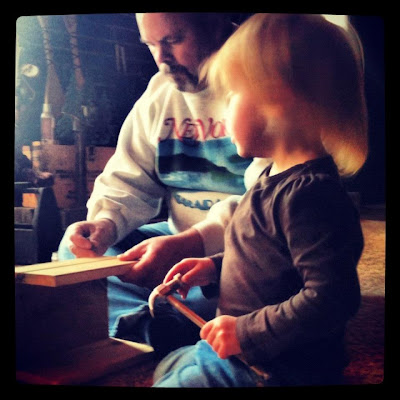
Yesterday while listening to NPR over lunch, there was a researcher discussing the science behind habit. He talked about what parts of the brain control habits, and just how fast habits are made (and conversely broken).
The
basal ganglia controls this function of habit. He explained that even functions like how we brush our teeth are habitual; that if one was to film an individual for a month brushing his/her teeth, that the individual would 99% of the time go through the same exact routine. But, if that individual had to explain the routine, most likely they couldn't; that our brains perform the functions innately.
I have on numerous occasions driven a good distance, only to arrive at my location to realize I couldn't even remember driving there - the turns, the yielding, the changing lanes, etc. Not that I was distracted or not paying attention, but that I was seemingly, completely focused on whatever was on the radio
(like listening to habit forming science on NPR) or thinking about an upcoming meeting, lyrics to a new song, etc. Driving even a short distance is extremely complex. Yet over time, it can occur without known or perceived thought.
Let's extend this to faith...What happens when our faith becomes habitual? Certainly there can be good outcomes. When we're faced with tragedy or suffering, and our first (most natural) response is prayer; that's good. But what happens when the way(s) we worship become habit? What happens when our routine causes us to participate in the same way we drive home from work without even really being there?
I can't give proof of the internal-negatives. But what I can produce, is response and reaction to worship where change happens.
When change is implemented into the worship environment, emails can flood the inbox with confusion and distaste. Even a simple change like re-organizing the seating can disrupt the routine that the basal ganglia has deemed "worship." When an extra song is sung, a prayer is skipped, a song you love uses new or different instrumentation, or announcements go too long, the basal ganglia is interrupted and "worship" is thrown out of whack. When I get these emails or am confronted with these conversations, it stirs me in such a way that I want to respond with disgust.
More appropriately, would be responding with programming and planning constant change in the worship experience. After all, we're supposed to be proclaiming a message of transformation. Not a one-time transformation, but constant transformation. That's what resurrection does. It transforms. And when we allow habit to define and control our faith, transformation comes to a standstill, resurrection loses its power, and worship becomes sterile.
Peace,
Ross















